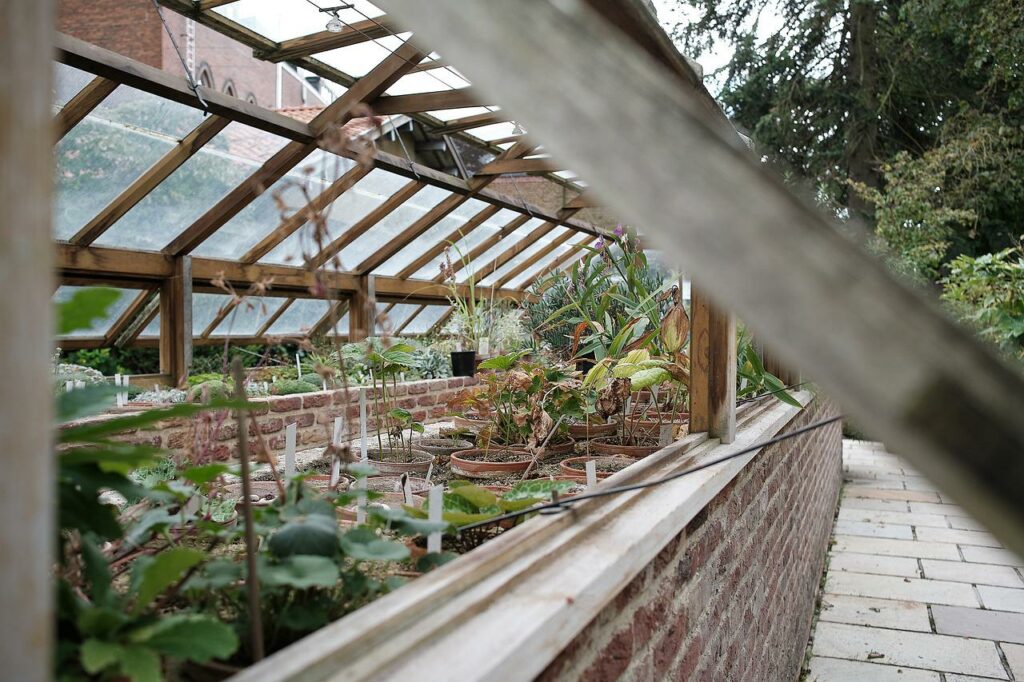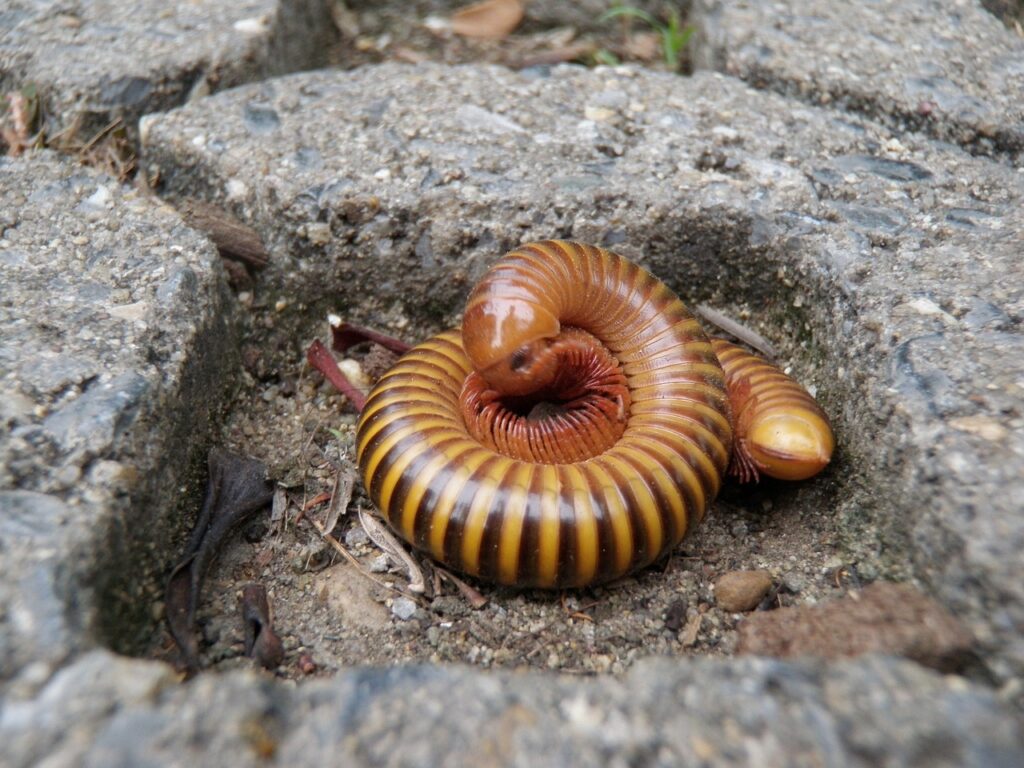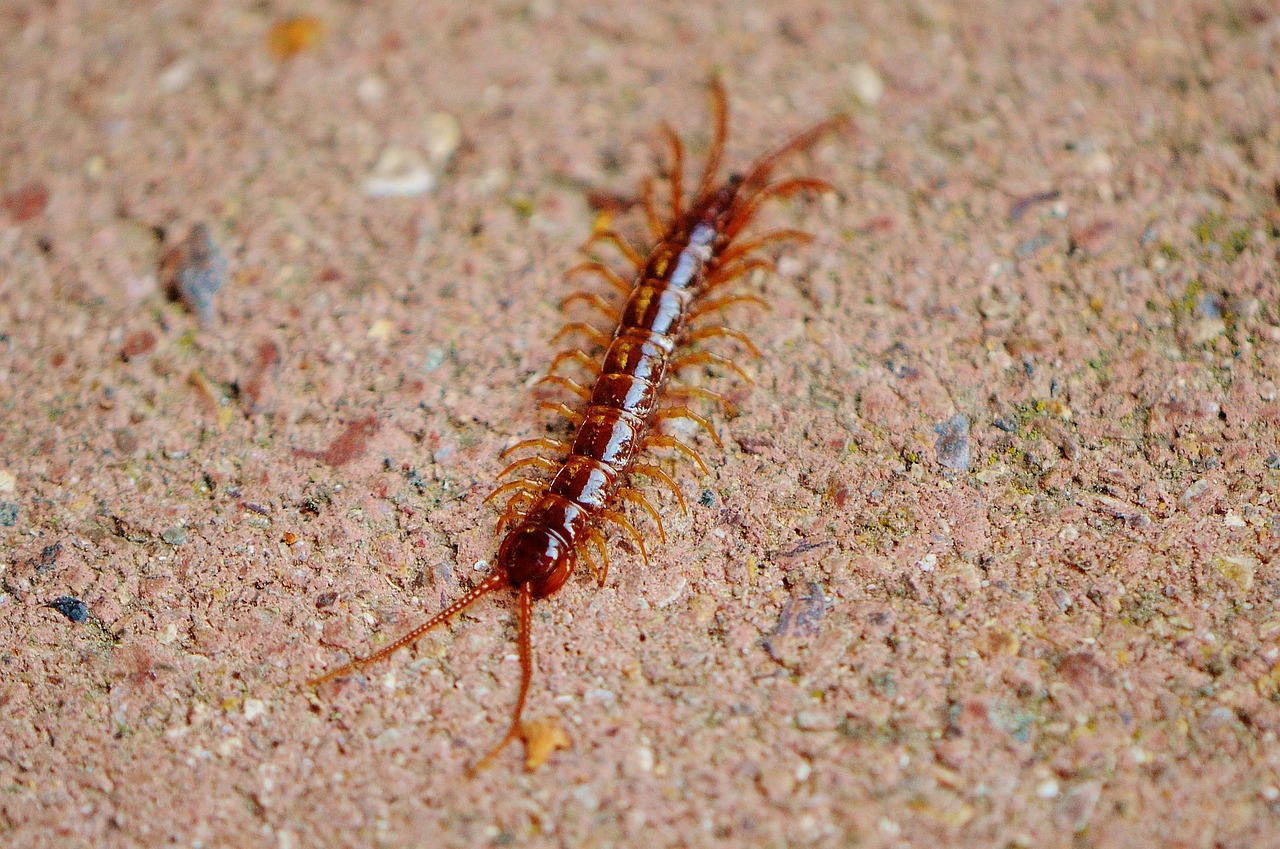Your garden will naturally attract different kinds of animals, including curiosities like centipedes — fast-moving insects with long bodies and many jointed legs. Centipedes are unusual looking creatures and if you do not know much about them they can seem otherworldly and scary. People often ask us “Are garden centipedes dangerous?” Well, centipedes do bite, but generally, they are really not that dangerous even though they may appear alien and frightening.
How garden centipedes can be dangerous
- Centipedes can bite, and they are venomous. Centipedes can bite humans. But they do so not just to be a menace. It’s more of a defense mechanism. They will only bite you if they feel threatened. Centipedes are venomous — they inject venom into their prey when they bite. Centipedes usually only bite and inject venom went they hunt a catch their prey. But if startled a centipede can bite us — and inject its venom into us — if they see us as a threat.
- Some centipedes are more frightening than others. Centipedes are arthropods with segmented bodies, with one pair of legs per segment. They can have up to 170 segments. These segments make centipedes look very alien to humans. We don’t typically see creatures like centipedes, and that’s why we are easily frightened by them. They can give you quite a fright when they suddenly appear inside your home. But some centipede species are more dangerous than others. Centipedes that hunt for bigger prey like rats and mice can have stronger bites and venom.
- They can get inside your home. Centipedes are predators. They hunt for insects in your garden. But while they are going around your property, they can end up crawling inside your home. They can get through the cracks in your walls, the gaps in the edges of your doors and windows, and other small passageways. They are also sensitive to light, so if you have your lights off in the evening, they are more likely to get inside. You can be surprised by centipedes in the dark. Your frantic reaction can make the centipedes view you as a threat and bite you.

Why you should not be overly concerned
- Common house centipedes are not that dangerous. You may think that garden centipedes are dangerous because they can get inside your home, bite you, and inject you with their venom. But their bites are no more painful than bee stings and their venom is only potent against their small prey. Your big human body can handle the venom, but allergies can occur. Some centipedes can be dangerous because of the strength of their bites and the potency of their venom. But the centipedes you typically see around human homes are not that dangerous.
- Centipedes can help control garden pests. Centipedes are aggressive predators. Their diet includes bed bugs, cockroaches, crickets, earwigs, flies, and moths. Do you notice something about this list? Most of them are considered household pests. Having centipedes around can be beneficial because they can help control the populations of insects that are not supposed to be on your property. This can be particularly helpful if you have a garden because a garden will likely attract a variety of unwelcomed visitors. Biological control of garden pests is not a new concept. Many gardeners even use parasitic wasps to control garden pests.
- Millipedes can be more damaging to your garden. Many people confuse millipedes and centipedes with one another. After all, they look kind of similar — worm-like creatures with a lot of legs. But millipedes look more like worms. Millipedes have more rounded shapes while centipedes have flatter bodies. They also feed on plant matter while centipedes feed on insects. Millipedes are actually more damaging to your garden because of what they eat, especially if their population is high.

How to control centipedes in your garden
- Limit moisture to prevent centipedes from thriving too well. Having a few centipedes in your garden can be beneficial because they are natural pest controllers. And they don’t damage your plants, unlike their close cousins the millipedes. But if you think their population is getting out of hand, one way to prevent them from thriving too much is to limit moisture in your garden. Clean areas that may accumulate moisture, like leaf litter. Fix irrigation and plumbing issues that may make your garden unnecessarily moist. And don’t overwater your plants.
- Remove debris where centipedes can hide. Centipedes like to hide in debris. Because they are sensitive to light, they try to stay in areas where the sun won’t shine on them. Give centipedes fewer spaces to hide in by cleaning your entire garden. Remove unnecessary debris, such as old tires, planks, rocks, fallen leaves and branches, and rotted logs. Centipedes are not the only ones who like hiding under clutter. Other garden pests such as slugs have the habit as well. And they like moisture too just as much.
- Use commercial pesticides. The pesticides used against centipedes have pyrethroids, such as cyfluthrin, deltamethrin, lambda-cyhalothrin, cypermethrin, permethrin, and tralomethrin. You can buy them in garden supply stores. Make sure to follow instructions, so you can effectively and safely use the products. They have toxic ingredients after all. And you and your loved ones may be at risk if you don’t use the products properly. These products will directly kill centipedes on contact.
Garden centipedes are not that dangerous
You can make the argument that garden centipedes are dangerous because they do bite humans. And they have venom too which can cause allergic reactions. But you can also make the argument that they are not that dangerous. They are small creatures and their bites and venom are not potent against victims the size of humans. Even your pet cats and dogs are relatively safe. The only real dangers are the initial pain of the bite and the allergic reaction from the venom.
A few centipedes in your garden can actually be beneficial because they are aggressive predators. They can kill off unwanted bugs trying to make your garden their new home. But don’t let centipedes become too comfortable either. Don’t give them the moisture and shelter they need to thrive.

